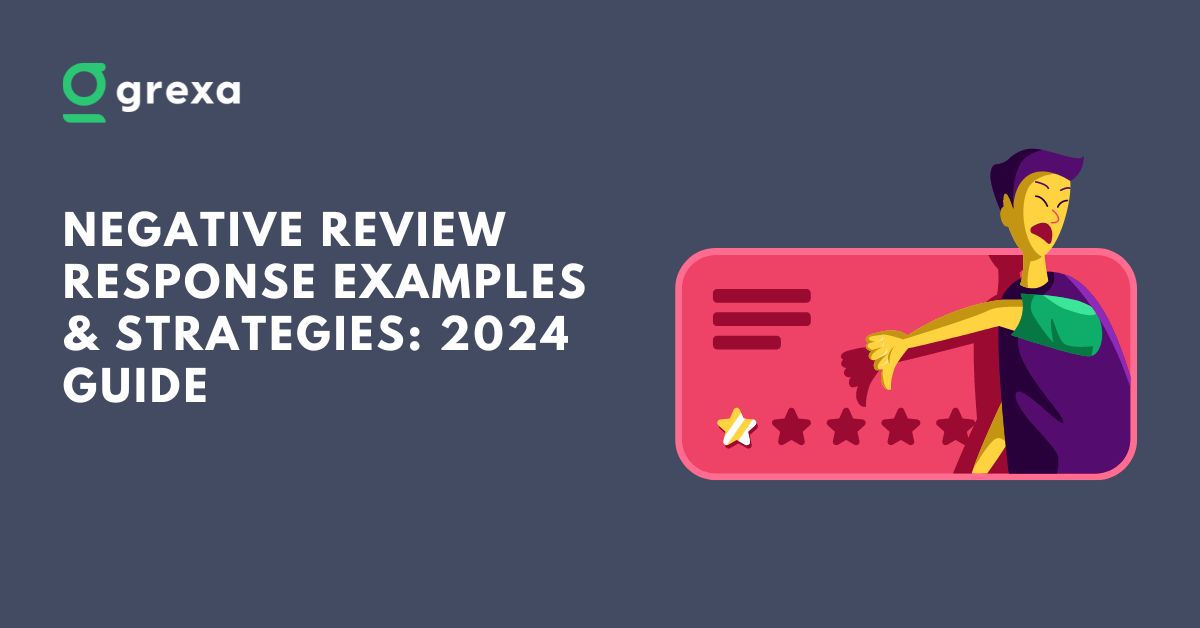Table of Contents

As a small business owner, you know that local SEO is crucial for attracting customers in your area and staying ahead of the competition. One of the most important aspects of local SEO is local SEO link building, which involves acquiring high-quality links from relevant websites to improve your search engine rankings.
In this comprehensive guide, we’ll explore 16 simple yet powerful local SEO link building techniques that you can implement to boost your online presence and drive more traffic to your website.
Introduction: The Significance of Local SEO Link Building for Small Businesses
Before we dive into the specific techniques, let’s understand why local SEO link building is so important for small businesses:
- Improved search engine rankings: High-quality local links can help improve your website’s search engine rankings for location-specific keywords, making it easier for potential customers to find you online.
- Increased referral traffic: Links from relevant local websites can drive targeted referral traffic to your site, leading to more potential customers and sales.
- Enhanced online reputation: Building relationships with local organizations and businesses through link building can help enhance your online reputation and establish your business as a trusted authority in your industry.
Before implementing any local SEO strategies, it’s crucial to understand the basics of Google My Business SEO, as it forms the foundation of your local online presence. Now that we understand the significance of local SEO link building, let’s explore the techniques you can use to acquire high-quality local links.
Understanding the Basics of Local SEO Link Building
Before implementing any local SEO link building techniques, it’s essential to understand the basics:
- Relevance: Focus on acquiring links from websites that are relevant to your business, industry, and location. Irrelevant links can actually harm your search engine rankings.
- Authority: Seek links from high-authority websites, such as local news outlets, government sites, and well-established local businesses. These links carry more weight and can significantly impact your rankings.
- Diversity: Aim for a diverse link profile, with links from various types of websites, such as directories, blogs, and social media platforms. A diverse link profile appears more natural to search engines and can help improve your rankings.
For a comprehensive overview of factors that influence local search rankings, check out our guide on local SEO ranking factors.
How to Identify High-Quality Local Link Building Opportunities
To effectively implement local SEO link building techniques, you need to identify high-quality link opportunities. Here are some methods to help you find them:
- Competitor analysis: Use tools like Ahrefs or SEMrush to analyze your competitors’ backlink profiles and identify websites that are linking to them. These websites may also be potential link opportunities for your business.
- Local business directories: Search for local business directories in your area and ensure your business is listed. Many directories allow you to include a link to your website, providing a valuable local link.
- Local event listings: Look for local event listings related to your industry and see if they allow sponsors or participants to include links to their websites.
- Local media outlets: Identify local newspapers, magazines, and blogs that cover topics related to your business. These outlets may be interested in featuring your business or accepting guest posts, which can lead to high-quality local links.
When optimizing your directory listings, don’t forget to include a Google review link to encourage customer feedback.
1. Leveraging Local Directories for Link Building
Local directories are a powerful tool for local SEO link building. Here are some tips for leveraging them effectively:
- Claim your listings: Ensure your business is listed in major local directories like Google My Business, Yelp, and Bing Places. Claim your listings and provide accurate, up-to-date information about your business, including a link to your website.
- Explore niche directories: In addition to major directories, look for niche directories specific to your industry or location. These directories may have less competition and can provide valuable targeted links.
- Optimize your listings: When creating or claiming your directory listings, optimize them by including relevant keywords in your business description, choosing the appropriate categories, and adding high-quality photos and videos.
2. Engaging with Local Media Outlets to Acquire Links
Local media outlets can be a valuable source of high-quality links. Here’s how to engage with them effectively:
- Pitch newsworthy stories: Identify newsworthy events or stories related to your business, such as a new product launch, a community initiative, or a milestone achievement. Pitch these stories to local media outlets, and if they cover them, they may include a link to your website.
- Offer expert commentary: Position yourself as an expert in your industry by offering to provide commentary or insights on relevant local news stories. If a journalist quotes you in their article, they may include a link to your website.
- Sponsor local content: Some local media outlets offer sponsored content opportunities, where you can pay to have an article or video featuring your business published on their site. While these links are often marked as “sponsored,” they can still drive valuable traffic to your site.
3. Crafting Press Releases for Newsworthy Events to Attract Links

Press releases can help you attract links from local media outlets and other websites. Here are some tips for crafting effective press releases:
- Identify newsworthy events: Focus on events or stories that are truly newsworthy, such as a significant company milestone, a new product launch, or a community initiative.
- Follow press release best practices: Use an attention-grabbing headline, include relevant keywords, and provide clear, concise information about your news. Include a link to your website in the body of the press release.
- Distribute your press release: Use a press release distribution service like PRWeb or PR Newswire to distribute your press release to local media outlets and websites. You can also reach out to local journalists directly to pitch your story.
4. Utilizing HARO (Help a Reporter Out) for Local SEO Link Building
HARO is a platform that connects journalists with expert sources for their stories. Here’s how to use it for local SEO link building:
- Sign up for HARO: Create a free account on the HARO website and select the categories that are relevant to your business and expertise.
- Monitor HARO requests: You’ll receive daily emails with journalist requests for expert sources. Monitor these requests and look for opportunities to provide insights or commentary related to your business or industry.
- Respond to relevant requests: When you find a relevant request, craft a compelling response that showcases your expertise and includes a link to your website. If the journalist uses your response in their article, you may receive a high-quality link.
5. Guest Posting on Local Websites and Blogs
Guest posting involves writing articles for other websites or blogs in your industry or location. Here’s how to use guest posting for local SEO link building:
- Identify local websites and blogs: Look for local websites and blogs that are relevant to your business or industry. Use search operators like “location” + “guest post” or “location” + “write for us” to find opportunities.
- Pitch relevant topics: Reach out to the website or blog owner with a personalized pitch, suggesting relevant topics that would be valuable to their audience. Include a brief outline of your proposed article and explain why you’re qualified to write about the topic.
- Include a link to your website: When writing your guest post, naturally include a link back to your website in the body of the article or in your author bio. Ensure the link is relevant and adds value to the reader.
6. Collaborating with Local Bloggers and Influencers

Collaborating with local bloggers and influencers can help you acquire high-quality links and exposure for your business. Here’s how to do it effectively:
- Identify relevant bloggers and influencers: Use tools like BuzzSumo or Followerwonk to find local bloggers and influencers in your industry or location. Look for those with engaged followings and high-quality content.
- Propose a collaboration: Reach out to the blogger or influencer with a personalized proposal for a collaboration, such as a sponsored post, a product review, or a social media takeover. Explain how the collaboration would benefit their audience and your business.
- Provide value: When collaborating with bloggers or influencers, focus on providing value to their audience. Offer exclusive discounts, valuable content, or unique experiences that their followers will appreciate.
7. Creating a Comprehensive Local Guide to Attract Links
Creating a comprehensive local guide can help you attract links from other local websites and establish your business as a trusted resource. Here’s how to create an effective local guide:
- Choose a relevant topic: Select a topic that’s relevant to your business and location, such as “The Ultimate Guide to [Your City]’s Best [Your Industry] Spots” or “Insider Tips for Navigating [Your City] Like a Local.”
- Research and write high-quality content: Conduct thorough research and write a comprehensive, engaging guide that provides genuine value to readers. Include relevant keywords and optimize your guide for search engines.
- Promote your guide: Share your guide on your social media channels, email newsletter, and local forums or groups. Reach out to local websites and bloggers and ask them to share or link to your guide if they find it valuable.
8. Sponsoring Local Organizations and Events for Link Building
Sponsoring local organizations and events can help you acquire links and build relationships with other local businesses. Here’s how to do it effectively:
- Identify relevant organizations and events: Look for local organizations and events that are relevant to your business or industry, such as non-profits, community groups, or industry conferences.
- Offer sponsorship: Reach out to the organization or event coordinator and offer to sponsor their event or initiative. Explain how your sponsorship would benefit their organization and attendees.
- Negotiate link placement: As part of your sponsorship agreement, negotiate a link to your website on the organization or event’s website, as well as any promotional materials or email communications.
9. Offering Scholarships to Gain Links from Educational Institutions
Offering scholarships can help you acquire links from educational institutions and establish your business as a community-minded organization. Here’s how to do it effectively:
- Create a scholarship program: Develop a scholarship program that’s relevant to your business or industry, such as a “Future [Your Industry] Leaders” scholarship or a “Community Service” scholarship.
- Promote your scholarship: Reach out to local high schools, colleges, and universities and inform them about your scholarship program. Ask them to share the information with their students and include a link to your scholarship page on their website.
- Select and announce winners: Review scholarship applications and select winners based on your predetermined criteria. Announce the winners on your website and social media channels, and reach out to local media outlets to promote the news.
10. Listing Your Business on Alumni Pages for Link Acquisition
If you or your employees are alumni of local schools or universities, you may be able to acquire links from their alumni pages. Here’s how to do it:
- Identify relevant alumni pages: Look for alumni pages or directories on the websites of local schools or universities that you or your employees attended.
- Submit your business information: Reach out to the alumni association or website administrator and ask to have your business listed on their alumni page or directory. Provide accurate information about your business, including a link to your website.
- Engage with the alumni community: Participate in alumni events or initiatives to build relationships with other alumni and potentially acquire additional links or partnerships.
11. Participating in Local Forums and Discussion Boards
Participating in local forums and discussion boards can help you build relationships with other local businesses and acquire links. Here’s how to do it effectively:
- Identify relevant forums and discussion boards: Look for local forums or discussion boards related to your industry or location, such as a local business owners’ group or a community Facebook group.
- Engage in discussions: Participate in discussions by providing valuable insights, answering questions, and sharing relevant content. Include a link to your website in your forum signature or profile.
- Build relationships: Use your participation in forums and discussion boards to build relationships with other local business owners and community members. These relationships may lead to link building opportunities or partnerships in the future.
12. Providing Testimonials for Other Local Businesses
Providing testimonials for other local businesses can help you acquire links and build relationships with other business owners. Here’s how to do it effectively:
- Identify businesses you can vouch for: Look for local businesses that you’ve had positive experiences with and would feel comfortable recommending to others.
- Reach out with a testimonial: Contact the business owner and offer to provide a testimonial for their website or marketing materials. Include a brief, genuine testimonial and a link to your website.
- Request a link: If the business owner agrees to use your testimonial, ask if they can include a link to your website alongside the testimonial. This can help you acquire a high-quality local link.
13. Partnering with Your Local Tourist Board for Link Opportunities
If your business caters to tourists or visitors to your area, partnering with your local tourist board can help you acquire links and exposure. Here’s how to do it effectively:
- Reach out to your local tourist board: Contact your local tourist board or visitor’s center and express your interest in partnering with them to promote your business and the local area.
- Offer valuable content or resources: Provide the tourist board with valuable content or resources that would be useful for visitors, such as a local guide, itinerary ideas, or insider tips. Include a link to your website in these resources.
- Participate in tourist board initiatives: Look for opportunities to participate in tourist board initiatives, such as visitor guides, social media campaigns, or events. These initiatives may provide additional link building and exposure opportunities.
14. Monitoring and Claiming Unlinked Mentions of Your Business
Monitoring and claiming unlinked mentions of your business can help you acquire additional links and ensure your online presence is accurate. Here’s how to do it:
- Use mention monitoring tools: Use tools like Google Alerts, Mention.com, or BrandMentions to monitor online mentions of your business name, products, or services.
- Identify unlinked mentions: When you find a mention of your business that doesn’t include a link to your website, reach out to the website owner or author and politely request that they add a link.
- Claim your business listings: Monitor online directories and review sites for listings of your business. Claim any unclaimed listings and ensure the information is accurate and up-to-date, including a link to your website.
15. Measuring the Success of Your Local SEO Link Building Efforts
To ensure your local SEO link building efforts are effective, it’s essential to measure their success. Here are some metrics to track:
- Referral traffic: Use Google Analytics to track the referral traffic coming from your local links. Look for increases in traffic from specific websites or directories where you’ve acquired links.
- Search engine rankings: Monitor your search engine rankings for local keywords using tools like Google Search Console or SEMrush. Look for improvements in your rankings over time as you acquire more high-quality local links.
- Conversions: Track conversions from your local links, such as phone calls, contact form submissions, or purchases. Use UTM parameters to track the specific links driving conversions.
16. Common Mistakes to Avoid in Local SEO Link Building
To ensure your local SEO link building efforts are effective and compliant with search engine guidelines, avoid these common mistakes:
- Buying or selling links: Engaging in the practice of buying or selling links can result in penalties from search engines and damage your online reputation.
- Overusing exact match anchor text: Using the same keyword-rich anchor text for all your links can appear spammy to search engines. Vary your anchor text and use natural, descriptive phrases.
- Neglecting relevance: Acquiring links from irrelevant websites or directories can harm your search engine rankings. Focus on acquiring links from websites and sources that are relevant to your business, industry, and location.
Conclusion: Implementing a Comprehensive Local SEO Link Building Strategy
By implementing a combination of these 16 simple yet powerful local SEO link building techniques, you can improve your search engine rankings, drive targeted traffic to your website, and enhance your online reputation. Remember to focus on acquiring high-quality, relevant links from reputable sources, and always prioritize providing value to your audience and the websites you partner with.
To streamline your local SEO link building efforts and ensure the best results, consider partnering with Grexa, an all-in-one platform that helps businesses manage their online presence. With Grexa’s expert guidance and powerful tools, you can take your local SEO link building to the next level and achieve long-term success for your business. Sign up for Grexa today and start building high-quality local links that drive results.
What is local SEO link building?
Local SEO link building is the process of acquiring high-quality links from relevant websites to improve your search engine rankings for location-specific keywords and drive targeted traffic to your website.
Why is local SEO link building important for small businesses?
Local SEO link building is important for small businesses because it can help improve search engine rankings, increase referral traffic, and enhance online reputation. By acquiring high-quality local links, small businesses can attract more customers in their area and stay ahead of the competition.
How can I identify high-quality local link building opportunities?
You can identify high-quality local link building opportunities by conducting competitor analysis, searching for local business directories and event listings, and identifying local media outlets and bloggers that cover topics related to your business or industry.
What are some common mistakes to avoid in local SEO link building?
Some common mistakes to avoid in local SEO link building include buying or selling links, overusing exact match anchor text, and neglecting relevance. It’s essential to focus on acquiring high-quality, relevant links from reputable sources



